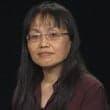Explore Chinese history and culture through the lens of individual expression in philosophy, literature, and art.
Explore Chinese history and culture through the lens of individual expression in philosophy, literature, and art.
This course offers a unique perspective on Chinese history and culture by focusing on the role of the individual in shaping Chinese civilization. Rather than examining China solely through political or social lenses, it delves into how individuals have contributed to Chinese culture through their art, literature, and philosophy. The curriculum explores the long-standing belief in China that being cultured and moral is essential for participation in public life. Students will engage with works by early Chinese thinkers like Confucius and Zhuangzi, analyze poetry by Tao Yuanming and Du Fu, study novels such as Dream of the Red Chamber, and learn to appreciate Chinese painting and calligraphy. Throughout the course, there's an emphasis on how these individual expressions have shaped Chinese culture and continue to influence it today.
4.6
(6 ratings)
17,347 already enrolled
Instructors:
English
English
What you'll learn
Understand key cultural traditions revered in modern China
Interpret Chinese philosophical texts from various periods
Analyze and appreciate masterpieces of Chinese literature
Recognize the "individual voice" in Chinese visual arts
Explore the evolution of Chinese thought from early thinkers to Neo-Confucianism
Examine the portrayal of love and individual experience in Chinese literature
Skills you'll gain
This course includes:
PreRecorded video
Graded assignments, exams
Access on Mobile, Tablet, Desktop
Limited Access access
Shareable certificate
Closed caption
Get a Completion Certificate
Share your certificate with prospective employers and your professional network on LinkedIn.
Created by
Provided by

Top companies offer this course to their employees
Top companies provide this course to enhance their employees' skills, ensuring they excel in handling complex projects and drive organizational success.





There are 8 modules in this course
This course provides a comprehensive introduction to Chinese humanities, focusing on the role of the individual in shaping Chinese culture. The curriculum is structured into eight units, each exploring different aspects of Chinese thought, literature, and art. Students will examine early Chinese philosophy, including the works of Confucius and Zhuangzi, and trace the development of individual expression through various periods of Chinese history. The course covers classic Chinese poetry, influential novels, and the evolution of Neo-Confucianism. It also includes a unit on Chinese visual arts, teaching students how to interpret the "individual voice" in paintings and calligraphy. The final units bring these historical perspectives into conversation with contemporary issues, culminating in a roundtable discussion on the relationship between the individual and society in China.
Early Chinese Thinkers and Writers and their Notion of Self
Module 1
Revealing the Individual in Chinese Poetry
Module 2
Love and Literature: Yingying's Story
Module 3
Neo-Confucianism
Module 4
Love and Illusion in the Story of the Stone
Module 5
Chinese Art: How to Paint the Inner Voice?
Module 6
Humanities Past and Present
Module 7
Roundtable Discussion, on the Individual and Society
Module 8
Fee Structure
Instructors

22 Courses
Distinguished Harvard Scholar Advancing Chinese Historical Studies and Digital Humanities
Peter K. Bol, the Charles H. Carswell Professor of East Asian Languages and Civilizations at Harvard University, has established himself as a preeminent scholar in Chinese history and digital humanities. After earning his Ph.D. from Princeton University in 1980, he has dedicated his career to understanding China's cultural elites from the Tang to Ming dynasties. His groundbreaking works include "This Culture of Ours: Intellectual Transitions in T'ang and Sung China" and "Neo-Confucianism in History," which have fundamentally shaped the field of Chinese intellectual history. As Harvard's Vice Provost (2013-2018), he revolutionized digital learning through HarvardX and co-developed ChinaX with William Kirby, reaching over 45,000 students globally. His innovative contributions extend to founding the Harvard Center for Geographic Analysis and directing major digital initiatives like the China Historical Geographic Information System and the China Biographical Database, which contains information on 470,000 historical figures. Bol's expertise spans multiple languages including Chinese, Japanese, and English, and his research has earned widespread recognition for combining traditional scholarship with cutting-edge digital methodologies

1 Course
Prominent Scholar Advancing Chinese Literature and Cultural Studies
Wai-yee Li has been a Professor of Chinese Literature at Harvard University since 2000, specializing in late imperial Chinese literature, early Chinese thought, and the intersections of gender and sexuality. She earned her BA from the University of Hong Kong and her PhD from Princeton University in 1987, where she later served as an associate professor. Her significant works include "Women and National Trauma in Late Imperial Chinese Literature" (2014), which explores the representation of women during periods of political upheaval, and "The Readability of the Past in Early Chinese Historiography" (2007), examining how historical narratives shape cultural memory. Li has also contributed to the understanding of premodern fiction and drama through her extensive publications, including translations and critical analyses. She has received numerous fellowships and grants from prestigious institutions such as the Harvard Society of Fellows and the American Academy in Berlin. Her teaching encompasses a wide range of topics, including Ming-Qing culture, historiography, and premodern literature, making her a key figure in contemporary Chinese literary studies.
Testimonials
Testimonials and success stories are a testament to the quality of this program and its impact on your career and learning journey. Be the first to help others make an informed decision by sharing your review of the course.
Frequently asked questions
Below are some of the most commonly asked questions about this course. We aim to provide clear and concise answers to help you better understand the course content, structure, and any other relevant information. If you have any additional questions or if your question is not listed here, please don't hesitate to reach out to our support team for further assistance.



